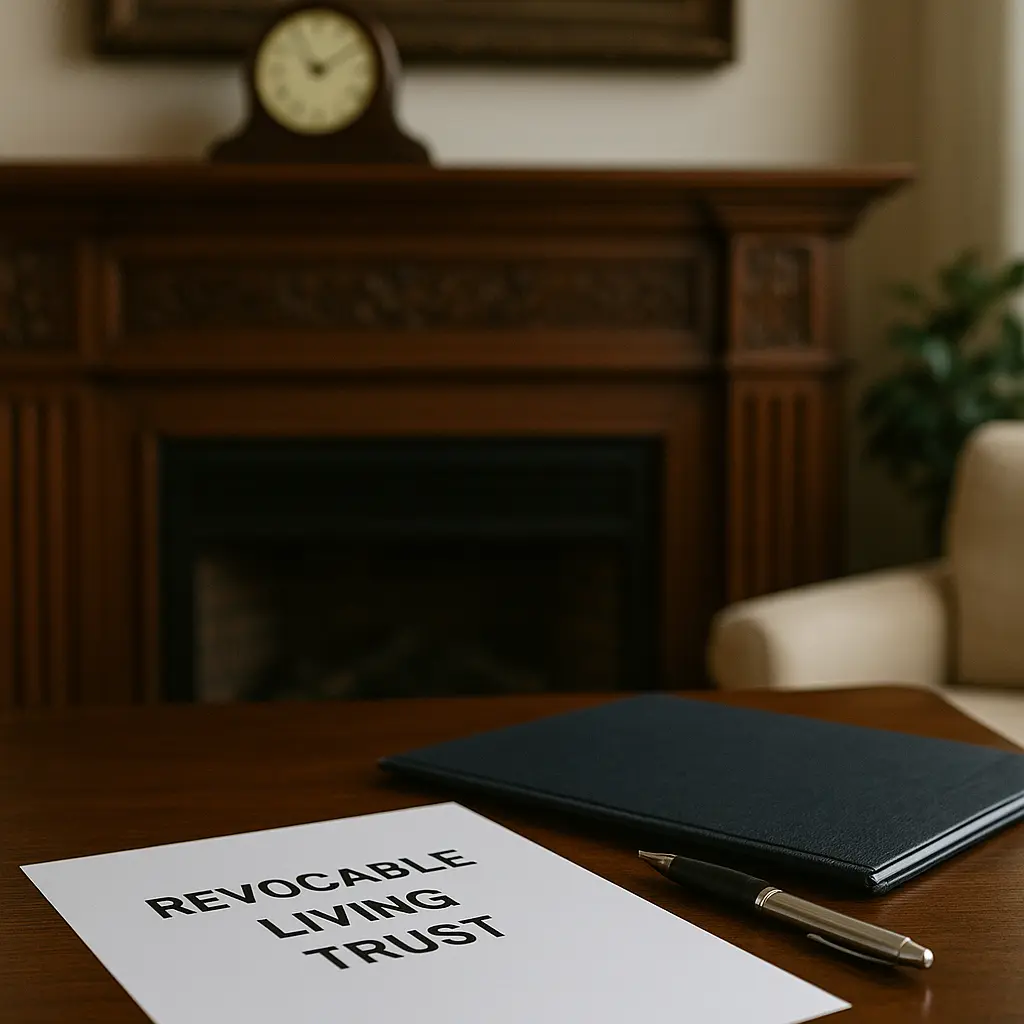
When someone passes away, not everything they own must pass through probate court. Certain property transfers automatically to beneficiaries, saving time and reducing stress for loved ones. These non probate assets include items like life insurance policies with named beneficiaries, joint bank accounts, and retirement plans. Understanding how these assets work can help families avoid unnecessary delays and keep the estate process more manageable.
Why Probate Exists
Probate protects the interests of heirs, creditors, and the state. It ensures debts are paid and assets are distributed according to law or the decedent’s wishes. Probate also reduces the risk of fraud by requiring court oversight. Although probate serves important functions, it can take time and cost money, so avoiding it when possible benefits surviving family members.
Assets That Avoid Probate
Several categories of property do not go through probate. These assets pass directly to beneficiaries or co-owners by law or contract.
Jointly Owned Property with Right of Survivorship
Property owned jointly with a right of survivorship does not pass through probate. When one owner dies, the surviving owner automatically inherits full ownership. This arrangement often applies to real estate or bank accounts. For example, if two spouses own a house with right of survivorship, the surviving spouse becomes the sole owner immediately after the other’s death.
Payable-on-Death Accounts
Banks and other financial institutions allow account holders to designate a payable-on-death (POD) beneficiary. When the account holder dies, the funds transfer directly to the named beneficiary. The process requires presenting proof of death, such as a death certificate, but it does not involve the probate court. POD designations can apply to checking accounts, savings accounts, and certificates of deposit.
Transfer-on-Death Accounts and Securities
Similar to POD accounts, transfer-on-death (TOD) registrations allow investment accounts to pass directly to named beneficiaries. This arrangement works for stocks, bonds, and brokerage accounts. The beneficiary provides documentation, and the account transfers without probate involvement. Some states also allow TOD deeds for real estate, transferring property outside probate upon death.
Retirement Accounts with Named Beneficiaries
Retirement accounts such as IRAs, 401(k)s, and pensions transfer directly to named beneficiaries. The plan administrator releases funds upon receipt of a death certificate and required forms. Naming beneficiaries on retirement accounts is critical. If no beneficiary is named, the account may become part of the estate and subject to probate.
Life Insurance Proceeds
Life insurance benefits bypass probate when the policy names a beneficiary. The insurance company pays proceeds directly to the designated person once they file a claim. If the policy lists the estate as the beneficiary, the funds must go through probate before distribution. For this reason, most people name individuals or trusts as beneficiaries rather than their estate.
Trust Assets
Property placed in a trust avoids probate. A living trust, also called a revocable trust, transfers ownership of assets into the trust while the grantor is alive. When the grantor dies, the trustee distributes assets according to the trust’s terms without court involvement. Trusts can hold real estate, bank accounts, investments, and personal property, making them a powerful estate planning tool.
Property with Community Property Rights of Survivorship
In Texas and a few other states, married couples can hold property as community property with right of survivorship. This arrangement ensures that when one spouse dies, the surviving spouse automatically inherits the deceased spouse’s share without probate. It simplifies property transfers while preserving the community property system.
Small Estate Affidavits
In some states, small estates may qualify for simplified procedures. While not technically avoiding probate, small estate affidavits allow heirs to collect property without going through full probate. This option applies when the estate falls under a certain dollar threshold and meets specific requirements.

Examples of Probate vs. Non-Probate Assets
To better understand the distinction, consider two examples. A house titled in one person’s name with no co-owner must pass through probate to transfer ownership. In contrast, a joint bank account with right of survivorship passes automatically to the surviving account holder. Similarly, a life insurance policy naming a child as the beneficiary avoids probate, but if the policy names no beneficiary, the proceeds enter the estate and require probate.
Why Some Assets Bypass Probate
Assets bypass probate because they have built-in mechanisms that transfer ownership. Contracts, designations, and titling methods create automatic pathways for property to change hands upon death. These legal structures reduce the need for court involvement and speed up the transfer process.
Advantages of Avoiding Probate
Avoiding probate offers several advantages:
- Faster access to funds for beneficiaries.
- Lower costs since court fees and attorney fees are reduced or eliminated.
- Privacy, because probate records are public, while non-probate transfers occur privately.
- Less stress, since the process avoids delays and reduces conflict.
Risks and Challenges
While avoiding probate carries benefits, it also comes with challenges. Beneficiary designations must stay current. If the named beneficiary dies before the account holder and no backup is listed, the asset may end up in probate. Joint ownership can also create problems if co-owners have disputes or creditors make claims. Trusts require careful management to avoid errors.

The Role of Planning
Planning ahead determines which assets avoid probate. Individuals should review property titles, update beneficiary designations, and consider trusts when appropriate. Proper planning prevents confusion and reduces costs for surviving family members. Without planning, many assets default into probate, creating delays and expenses.
Frequently Overlooked Non-Probate Assets
- Vehicles: Some states allow transfer-on-death registrations for cars, allowing them to pass without probate.
- Personal property in trusts: Items like jewelry, artwork, or furniture placed into a trust bypass probate.
- Business interests: Shares in certain business entities may transfer automatically under buy-sell agreements or operating agreements.
The Role of Attorneys in Probate Planning
Attorneys guide individuals through estate planning decisions that reduce probate involvement. They draft trusts, update deeds, and ensure beneficiary designations align with overall goals. Legal guidance helps avoid mistakes that could pull assets into probate unnecessarily.
Conclusion
Not every asset must pass through probate. Property with joint ownership, accounts with named beneficiaries, life insurance policies, retirement plans, and trust assets all transfer outside the probate process. These non-probate transfers save time, money, and stress for families. They also protect privacy and provide beneficiaries with faster access to resources. Planning ahead and maintaining accurate documents ensures these benefits remain intact. Understanding what assets do not go through probate gives families greater confidence and peace of mind when handling estate matters.

Other Related Articles:
- Top Reasons to Seek a Free Consultation with a Probate Lawyer During a Texas Divorce
- What Assets Must Go Through Probate in Texas?
- Texas Estate Planning, Divorce and Protecting Assets
- What is an Heirship Proceeding in Texas Probate?
- What Happens To Debt in Texas Probate?
- How to Avoid Probate in Texas: Tips and Strategies
- Understanding Probate in Texas: What You Need to Know
- How to avoid probate in Texas: Basic strategies for estate planning
- Understanding the Role of the Executor in Texas Probate
- The Basics of Texas Probate: A Guide for Executors and Heirs
- 5 Common Misconceptions About Texas Probate and Estate Planning
- Estate Planning and Probate: Maximizing the Benefits of a Will
- Non-Probate Transfers Do Just That
- How long does an executor have to distribute assets?
- Is a codicil legally binding?


